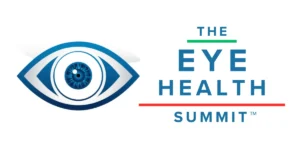Can You Repeat That Please? Does This Sound Like You?
Babies, Bottles & Booze
Bringing a child into the world can be a scary endeavor and getting the health facts straight about what to consume or avoid during pregnancy and after the baby is born can be overwhelming. Contradicting health headlines and commentary-filled social media feeds bombard expectant mothers with fears and concerns they may have never considered.
Dr. Kecia Gaither, MD, a double board-certified physician in OB-GYN and Maternal Fetal Medicine and Director of Perinatal Services at Lincoln Medical and Mental Health Center in the Bronx says as more information and studies are published, old theories are being discredited and giving way to new practices.
In the age of minute-to-minute digital information, Gaither cautions mothers on fables and facts when it comes to issues surrounding babies, bottles and booze (talking points include fables: A Little Wine is Fine; Breast is Best; and Mom’s Milk Only). She will also discuss quick and nutritious mom prep meals that average 400 more calories than what a non-pregnant woman may eat (exactly what is needed during the second and third trimester during pregnancy).
With more than 20 years of professional experience, driven by her mission to provide exemplary prenatal care to all women regardless of circumstance, Gaither is a regular go-to expert for media including on outlets including Today.com, Prevention magazine and more. Additionally, she has been published by multiple scientific journals and is a reviewer for WebMD.
Fable: A Little Wine is Fine
Fact: Have a Mocktail Instead
Prenatal exposure to alcohol is the leading preventable cause of birth defects in the United States and several negative effects of alcohol regarding babies are grouped together under the term fetal alcohol spectrum disorders (FASDs). There is no type or amount of alcohol that is safe to consume when it comes FASDs, which can result in children with small head size, short stature, clumsiness, hyperactivity, poor attention span, delayed speech and language, learning disabilities, low IQ, visual defects or hearing defects, as well as heart, kidney or bone defects. Any woman who becomes pregnant, or is pregnant, should avoid alcohol completely. The important thing to remember is that during pregnancy, alcohol can move across the placenta, and is toxic to the developing fetus. In large amounts, it can cause serious damage. Whereas with breastfeeding, the alcohol does not transfer straight into the breast milk. Erring on the side of caution is best when considering alcohol consumption while breastfeeding. A baby’s brain is developing rapidly in the first year of life so it’s advisable to provide the best opportunity possible for high-functioning development and stay as pure as feasible while breastfeeding.
Fable: Breast Is Best
Fact: Formula is Fine (and carrageenan is vital)
Yes, as the familiar mantra goes, “breast is best,” but it’s not the only nutritious option for baby, and new mothers should not fret if they have to supplement with formula or use it exclusively. Single mothers, especially, who may not have much support for infant care, should not be concerned that they are providing a subpar nutrition plan to their child. Another scare tactic used against mothers regarding formula is that it contains an ingredient called carrageenan that food-fear mongers claim is not safe. This could not be further from the truth. Carrageenan is a naturally occurring ingredient that is extracted from edible red seaweed and used in infant formula to make sure vital nutrients remain mixed throughout the formula and do not settle to the bottom. This is especially important for babies who are fussy and may not drink an entire bottle in one feeding. Not only is carrageenan vital in infant formula, it’s used in many food products we eat daily, including chocolate milk, ice cream, yogurt, cottage cheese, coffee beverages, creamers, salad dressings, soy and almond milk, various organic and plant-based foods, plus it’s in the nori (seaweed) that wraps your favorite sushi. In fact, carrageenan is what gives seaweed its structure. Not only has the FDA reviewed the scientific research on carrageenan’s safety, so have many respected scientists who have concluded and detailed the reasons why carrageenan is safe while noting misleading and flawed information that continues to circulate. Current human clinical research suggests carrageenan may play a role in lowering cholesterol, reducing inflammation and fighting colds and viruses. The Food & Agriculture Organization of the United Nations World Health Organization, the World Health Organization’s Joint Expert Committee on Food Additives and the International Agency for Research on Cancer, have all confirmed carrageenan’s safety. Further, carrageenan-containing seaweeds are sustainably harvested and responsible for employing 75,000 family farmers in developing economies around the world; which is another good reason to feel good about feeding your baby infant formula.
Fable: Mom’s Milk Only
Fact: Share with Care
According to the Centers for Disease Control and Prevention’s 2018 Breastfeeding Report Card, 73.8 percent of infants born in 2015 were breastfed at some point. While all mothers aren’t necessarily able to produce their own milk, there is a way to provide access to pasteurized donor human milk, if moms choose. There seems to be a stigma associated with sharing breast milk but for most of human history, the sharing of human milk has taken place in the form of one mother breastfeeding the baby of another. There may be limited or no access to any other feeding alternatives. The WHO lists “wet-nursing” and milk banks as being equal alternatives when mother’s own milk is not available. The Human Milk Banking Association of North America accredits nonprofit milk banks in the United States and Canada and sets international guidelines for pasteurized donor milk. Upon donation, it is screened, pooled, and tested so that it can be dispensed to hospitals and outpatient families for use by infants in need. All donor mothers require screening and approval, and all donor milk is logged and monitored. Pasteurization eliminates harmful bacteria or other potential infecting organisms. A small number of nutritional elements are lost in the process, but mothers also have the option of supplementing with high-grade formula.
More at: https://keciagaither.com/
Babies, Bottles & Booze
Babies, bottle & Booze Part 2




